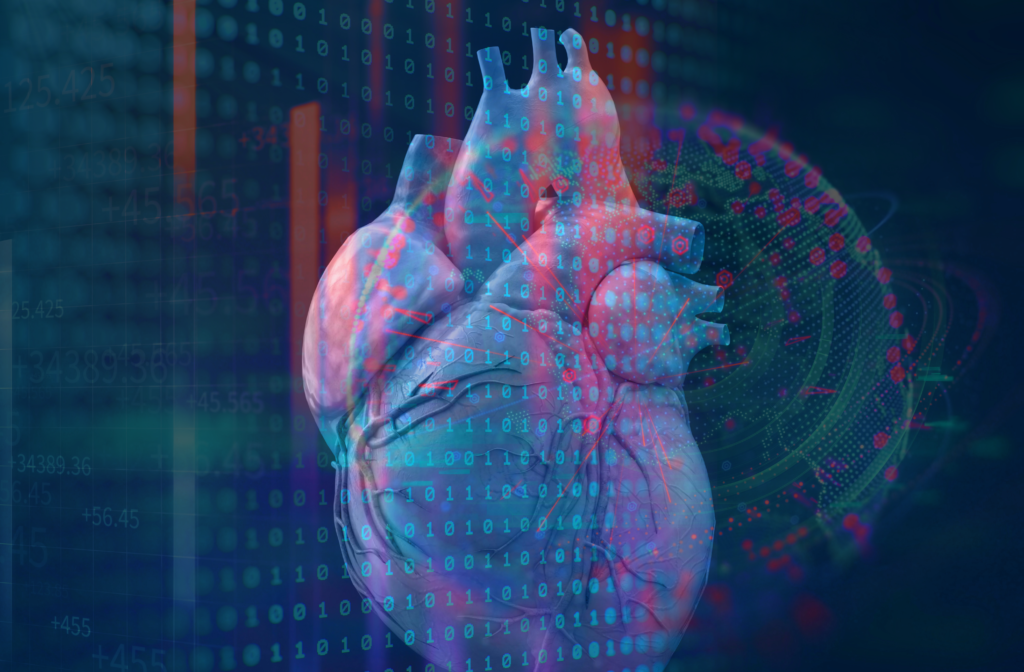The advent of Artificial Intelligence (AI) is poised to revolutionize the field of healthcare, particularly in the realm of vital signs and blood pressure (BP) monitoring. Traditional methods, while effective, are often limited by their reliance on sporadic measurements and the need for specialized equipment. Generative AI models deliver new solutions to overcome these limitations, ushering in an era of continuous, personalized, and data-driven healthcare.
Breakthroughs in Access via Remote Monitoring
One of the most significant ways AI is transforming vital signs monitoring is through the enablement of frequent and easy remote data collection. Home based devices in everyday life can capture biomarkers such as sleep patterns, physical activity, heart rate, a-fibrillation and heart rate variability, in the context that doctors want, during the patient’s daily routine. This detailed data can provide a far more comprehensive picture of a patient’s health than intermittent readings, allowing for early detection of anomalies and timely interventions.
Similarly, AI-powered BP monitoring is also moving beyond the traditional cuff-based devices, even eliminating the need for a wearable. As the first CE certified MDR-EU Class IIa medical device smartphone app, Biospectal’s OptiBP leverages AI algorithms to analyze subtle changes in fingertip coloration captured by the phone’s camera, providing BP readings without the need for cumbersome equipment. This enables frequent, convenient remote monitoring, empowering individuals to take charge of their cardiovascular health.
Data-Driven Insights and Personalized Medicine
The vast amounts of data generated by more accessible vital signs monitoring during daily life create a treasure trove of information for AI algorithms to analyze. By identifying patterns and correlations within this data via quickly evolving training models such as unsupervised AI and generative capabliities, AI can uncover hidden insights into individual health trends, risk factors, and disease progression. This allows for a more precise and personalized approach to healthcare, where treatments and interventions are tailored to each patient’s unique needs and even can create predictive insights into long term patient specific trends.
For instance, AI algorithms can analyze BP readings in conjunction with other health data, such as sleep patterns, activity levels, and medication adherence, to identify personalized risk factors for hypertension and cardiovascular disease. This empowers healthcare providers to develop targeted interventions and lifestyle modifications, potentially preventing serious health complications.
Early Detection and Prevention
Easy and available remote monitoring of blood pressure, the number one chronic disease worldwide, facilitated by AI can significantly enhance early detection and prevention of various health conditions across the globe. Changes in vital signs that might go untracked with traditional methods can be quickly identified by AI algorithms, signaling potential problems before they escalate. AI-powered BP monitoring can identify ongoing tracking of hypertension, allowing for lifestyle modifications or medication adjustments to prevent long-term complications.
Challenges and Considerations
Integrating AI into clinical workflows and ensuring its acceptance by healthcare providers and patients are crucial for its successful implementation. Awareness and education are needed to familiarize healthcare professionals with the capabilities and limitations of AI-powered tools, enabling them to leverage these technologies effectively in their practice.
The Future of Vital Signs and BP Monitoring
The future of vital signs and BP monitoring is undoubtedly intertwined with the advancement of AI. As AI algorithms become more sophisticated, we can expect even more accurate, personalized, and predictive insights into our health. This will empower individuals to take proactive measures to maintain their well-being, while healthcare providers will have powerful tools to deliver more effective and personalized care.
In conclusion, AI is poised to revolutionize vital signs and blood pressure monitoring, offering a future where continuous,remote, and data-driven healthcare is the norm. The potential benefits are immense, promising a healthier and more personalized approach to healthcare for individuals and populations alike.
